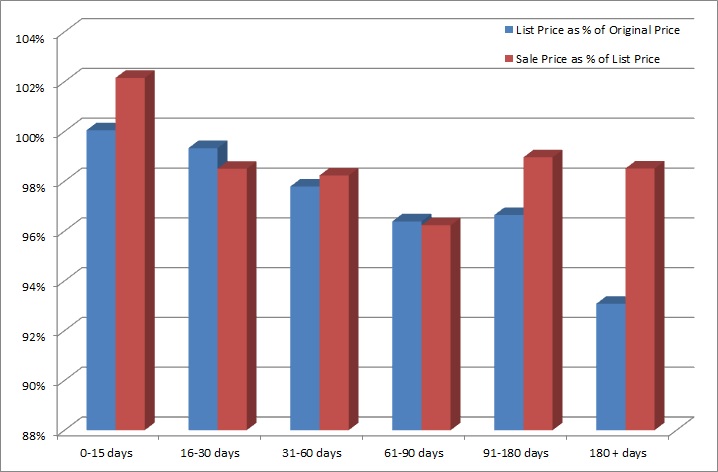The final step in the sales process: closing the sale
 The final step in the sales process is closing the sale and giving the new owner possession of the home. The actual closing process is managed either by an escrow officer or real estate attorney. The role of the escrow officer is to make sure that the appropriate funds change hands between all parties (buyer, seller, buyer’s lender, and seller’s lender) and to make sure that title to the property is properly transferred. They act as a neutral third party to the transaction.
The final step in the sales process is closing the sale and giving the new owner possession of the home. The actual closing process is managed either by an escrow officer or real estate attorney. The role of the escrow officer is to make sure that the appropriate funds change hands between all parties (buyer, seller, buyer’s lender, and seller’s lender) and to make sure that title to the property is properly transferred. They act as a neutral third party to the transaction.
A week or two before closing, depending on the exact schedule and how busy the escrow officer is, you will receive an email or letter requesting information from you before closing. The escrow company will require information about your mortgage lenders, utility company and anyone else who needs paid out of the funds you will receive. They will also need to know how you would like to be paid. The quickest way to receive funds is to have the escrow company wire funds directly to your bank account.
The exact date you need to come in to close on the sale won’t be set until a few days before the actual closing date. That is because the paperwork from the buyer’s side tends to drive the end-game. In particular, there is almost always a last minute rush to get final paperwork from the buyer’s lender. If they have you, the seller, come in too soon, you may have signed all your paperwork for nothing. Its generally considered best to make sure the buyer has completed all of their paperwork. Escrow will prepare an estimated HUD-1 statement that lists out the exact costs owed by everyone, and lists exactly how much money you will receive (within a few dollars). Review this before the closing date in case there are any errors.
Fortunately for you, the actual closing appointment will not last long. You have far less paperwork to sign than the buyer because they are required to sign a wide array of loan documents.
Once everyone has signed the paperwork, then the escrow officer will send copies to the buyer’s lender. Assuming all of the paperwork has been completed correctly, the lender will then fund the loan, meaning they will wire the money to escrow.
Once escrow actually receives the money, they will release documents for recording to the county. After escrow receives recording numbers confirming that the property legally transferred hands, they will distribute the funds to all appropriate parties.
At some point during this last phase, you or your real estate agent will arrange to get the keys and after the recording numbers are received, the buyer can have them. The property has now officially changed hands. Congratulations on selling your home!

